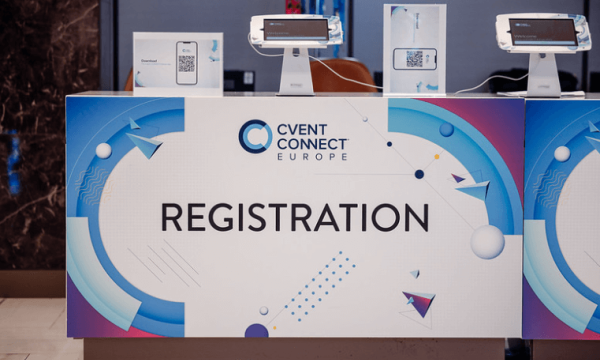
In the event industry, people have always been social by nature - whether establishing personal connections at live events, understanding a client's meeting objectives, or negotiating business deals with vendors. It's an innate part of what we do. However, the channels through which these social interactions take place are changing in some fundamental ways.
In speaking with clients who use our event planning and management software, we have heard that social media is impacting their meetings and events in important ways today... right now.
Here are 10 reasons planners need to think about their social media strategy for any public meetings, events or conferences:
- Social media is the perfect medium for people who like to attend events and conferences because it has the main two components that draw people to events and make them successful - networking opportunities and educational content.
- Most attendees are using social media sites today such as Facebook, LinkedIn, and Twitter. Attendees will probably be talking about the event in advance, during the event, and after the event on these social sites, whether you know it or not. This is especially true if your event has a large audience that share similar interests and are already engaged with one another on social media. It looks strange if the organizer is not enabling, participating, and encouraging that engagement.
- Promoting events on social media is a great way to drive attendance. If there are roughly 3 billion people on Facebook, 875 million people on LinkedIn, and 330 million on Twitter, common sense would tell you some of those people might be interested in attending your event.
- Word-of-mouth marketing has a whole new meaning with the advent of social media, as planners can mobilize registered attendees to reach out to their social networks to invite their friends/colleagues to register for events and conferences. Before, viral marketing would require attendees to actually pick up a phone or proactively send an email to maybe a handful of their acquaintances (if they bothered to make the effort), whereas today, attendees can share your event with thousands of contacts at the click of a button.
- One of the most beneficial aspects of social media for event planning is that users self-select what topics they are interested in and what they care about. They do this by joining discussion groups on LinkedIn, becoming fans of pages and brands on Facebook, tweeting about specific topics, and sharing content they find interesting. Understanding and identifying this information is a great way for planners to target the ideal attendees based on their interests rather than just traditional criteria like job titles and organizations.
- Online forums such as LinkedIn groups and Facebook allow attendees to communicate and collaborate before and after the event. This can change the dynamic of the event in a positive way, as more meaningful dialogue and participation can occur if attendees have a higher common knowledge point at the start of the event.
- Mobile applications are feeding the frenzy by making social media sites such as Twitter, Facebook, YouTube, and blogs easily accessible during live events. This not only increases social participation of your live audience, but, now, all the people on the web who weren't able to attend the event in person can now follow the live updates and engage.
- You can bet speakers will be better prepared to tailor their message to the audience and deliver a great presentation if feedback about their presentation is being posted on the Internet in real time via Twitter, Facebook, or attendees' blogs.
- Attendees are now empowered to become reviewers or critics of events. When they are armed with social networks that act as a global online publishing platform, attendees can easily publish their feedback for the world to see. This forces planners to take their event experiences to the next level.
- Social media can shape the reputation of your events and your organization. Events and conferences are largely successful over time because of their good reputation with sponsors and attendees. In that regard social media represents a huge opportunity to improve your reputation and success. That can be as simple as hearing feedback from attendees and making changes based on that feedback.




